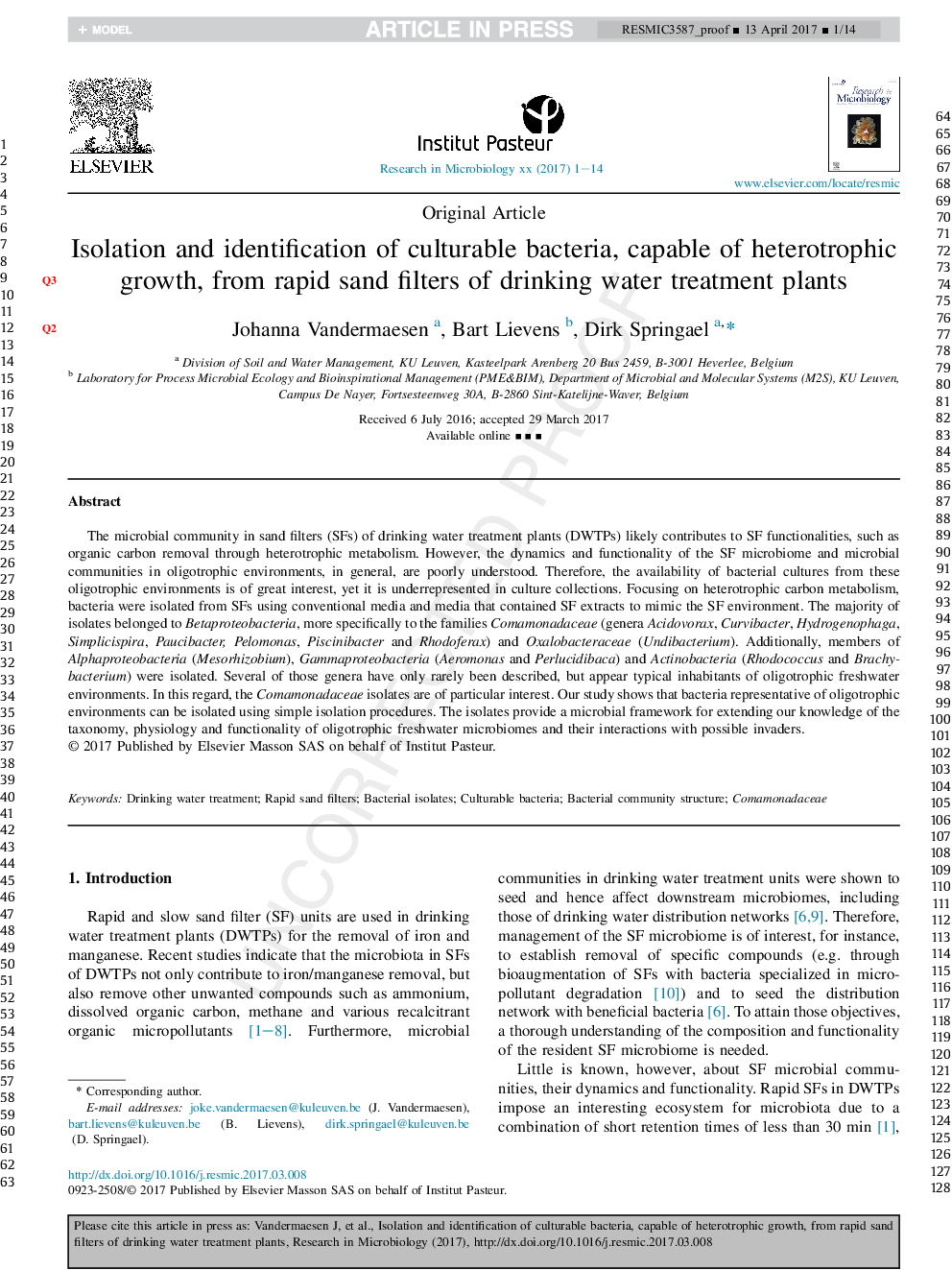| Article ID | Journal | Published Year | Pages | File Type |
|---|---|---|---|---|
| 5739730 | Research in Microbiology | 2017 | 14 Pages |
Abstract
The microbial community in sand filters (SFs) of drinking water treatment plants (DWTPs) likely contributes to SF functionalities, such as organic carbon removal through heterotrophic metabolism. However, the dynamics and functionality of the SF microbiome and microbial communities in oligotrophic freshwater environments in general, are poorly understood. Therefore, the availability of bacterial strains from these oligotrophic environments is of great interest, but such organisms are currently underrepresented in culture collections. Focusing on heterotrophic carbon metabolism, bacteria were isolated from SFs using conventional media and media that contained SF extracts to mimic the SF environment. The majority of isolates belonged to Betaproteobacteria, more specifically to the families Comamonadaceae (genera Acidovorax, Curvibacter, Hydrogenophaga, Simplicispira, Paucibacter, Pelomonas, Piscinibacter and Rhodoferax) and Oxalobacteraceae (Undibacterium). Additionally, members of Alphaproteobacteria (Mesorhizobium), Gammaproteobacteria (Aeromonas and Perlucidibaca) and Actinobacteria (Rhodococcus and Brachybacterium) were isolated. Several of those genera have only rarely been described, but appear typical inhabitants of oligotrophic freshwater environments. In this regard, the Comamonadaceae isolates are of particular interest. Our study shows that bacteria representative of oligotrophic environments can be isolated using simple isolation procedures. The isolates provide a microbial framework for extending our knowledge of the taxonomy, physiology and functionality of oligotrophic freshwater microbiomes and their interactions with possible invaders.
Keywords
Related Topics
Life Sciences
Immunology and Microbiology
Applied Microbiology and Biotechnology
Authors
Johanna Vandermaesen, Bart Lievens, Dirk Springael,
